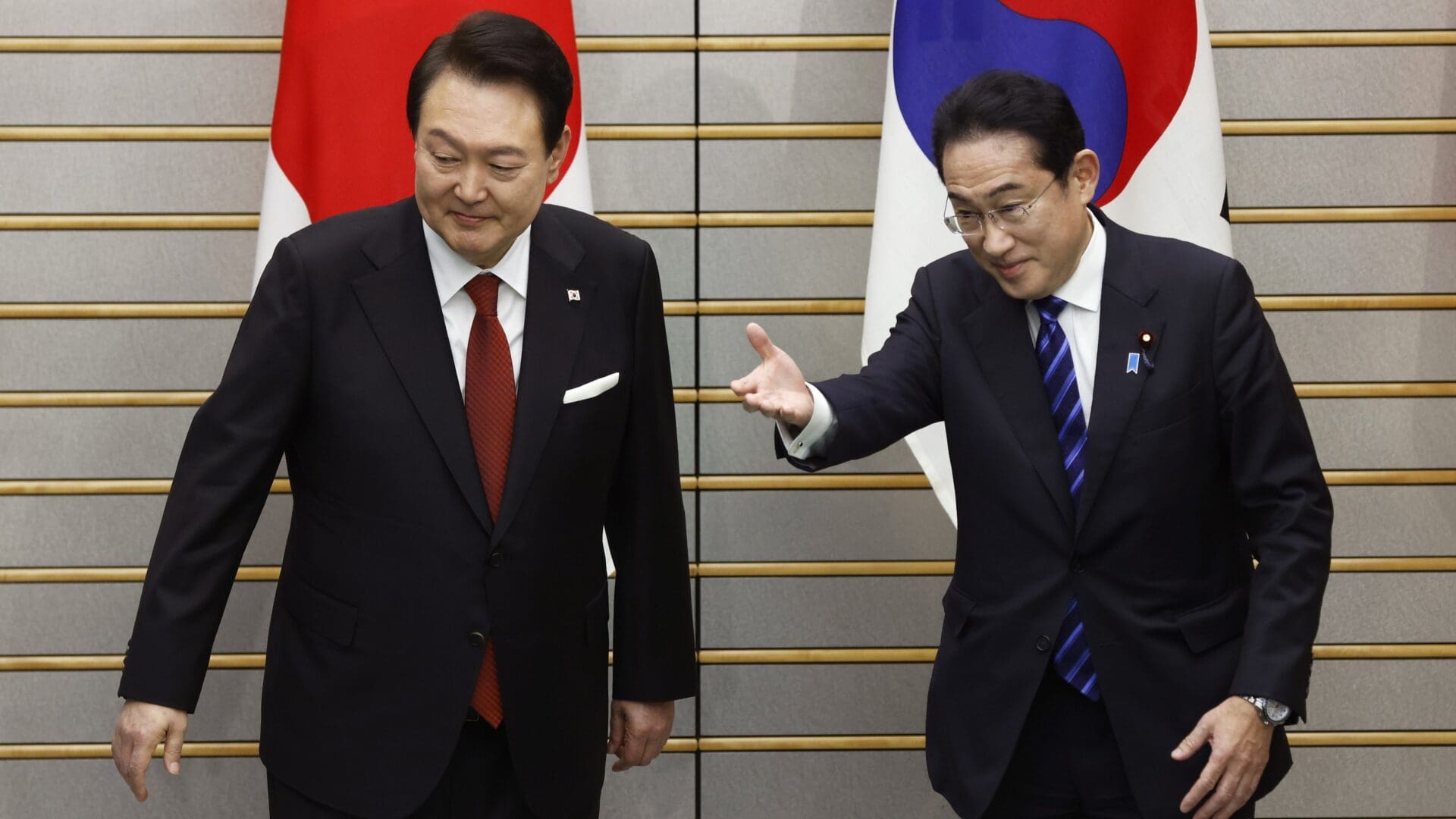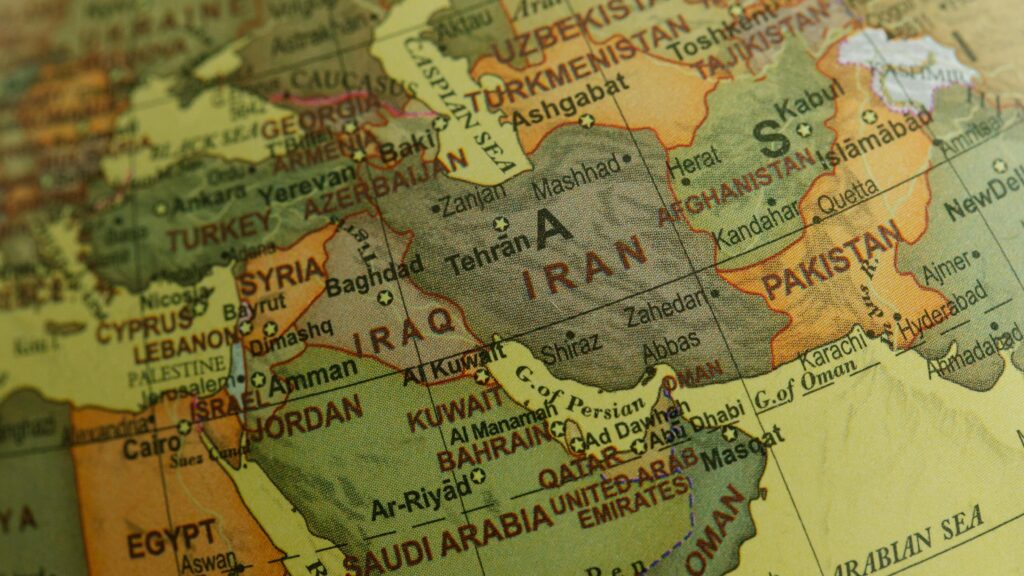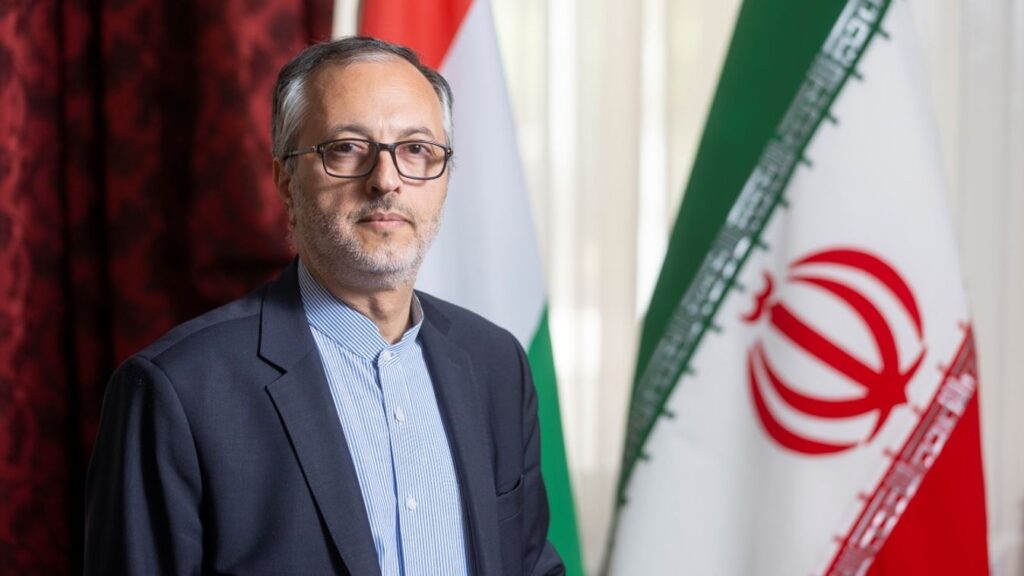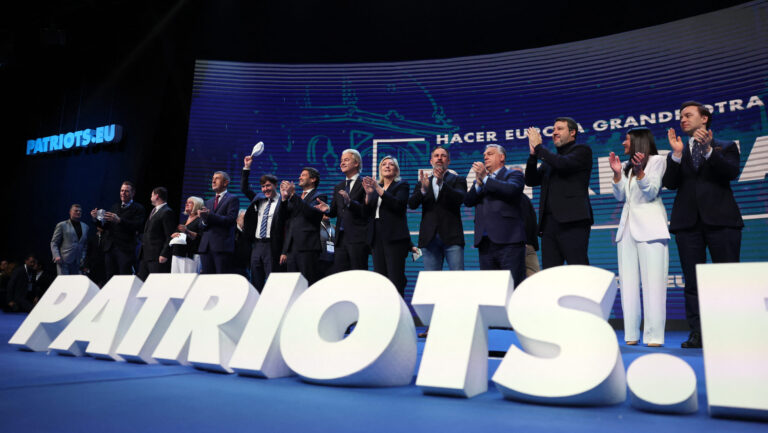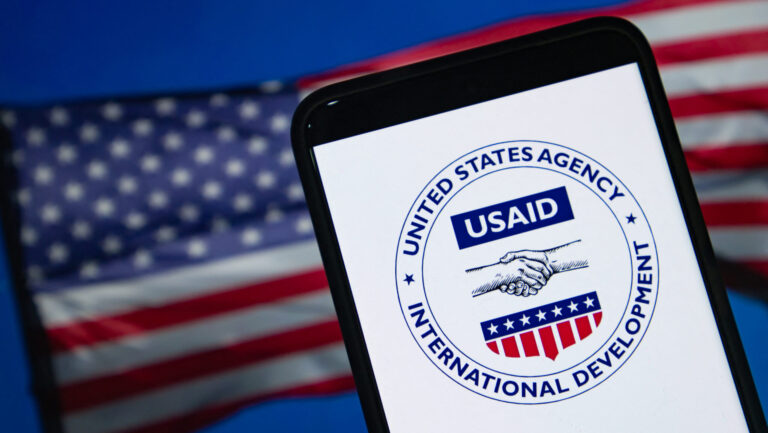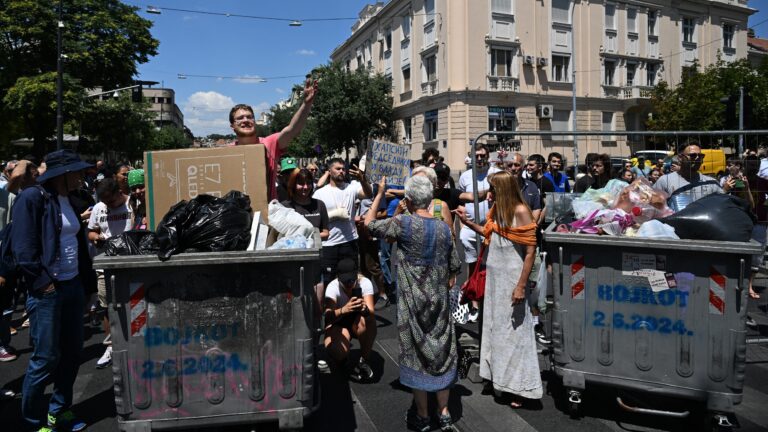South Korean President Yoon Suk-yeol called Japan a partner nation with whom Korea shares universal values in a speech early this March. It was followed by unprecedented diplomatic activity and mutual gestures that culminated in the official visit by the Korean president in Tokyo with an iconic moment of the two leaders having a beer.
Two economic powerhouses and stable democracies in East Asia allied with the United States facing similar threats should make natural friends but the long, rich, and multifaceted history of the Korea-Japan relations are still troubled by unsolved historical issues that leave the speedy rapprochement and newly found friendship on shaky grounds. However, the brave foreign policy move will strengthen the rules-based order in East Asia and at the same time elevate the international profile of the Korean president and his country. The gesture has already paid off as Yoon seems to have bought himself the ticket to Hiroshima for the G7 Summit. Back home it will be a tougher sell, though, as Yoon’s party doesn’t have a majority in the parliament.
South Korean President Yoon Suk-yeol said in his National Day speech that ‘Japan has transformed from a militaristic aggressor of the past into a partner that shares the same universal values with us,’ adding that today the Republic of Korea and Japan are partners cooperating on economic and security issues while also working together to tackle global challenges.
To add spice to his words, President Yoon’s speech hitting a friendly tone with Japan was held on 1 March, the memorial date of the March First Independence Movement, which was a protest movement of the Korean people against the Japanese occupation of the Korean peninsula that lasted from 1910 till 1945, Japan’s defeat in the world war. Yoon hit a friendly rhetorical tone without mentioning any of the issues that are still obstacles to an amicable and constructive relationship between the two nations, despite obviously overlapping interests from both sides.
The History of Japan-Korea Relations
The colonial past has always been a heavy burden on Japan-Korea relations. The early 20th century was the age of imperialism and colonialism in the world, and Imperial Japan, the rising power of Asia, strengthened and bold after the surprise victory over Czarist Russia five years earlier, used the weakness of the Korean peninsula and occupied it. Korea had come into Japan’s sphere of influence earlier, in 1876, with the Japan-Korea Treaty, and from then on Japan worked on integrating Korea into the Japanese economic and political system step by step, through mutual but uneven treaties, and the Korean Empire became a de facto protectorate of Japan in 1905.
The annexation in 1910 and the colonial time not only meant forced modernisation of Korea,
but also the suppression of the Korean people and Korean culture as well.
Among other things, Japanese became the official language and Korean people were strongly encouraged to adopt Japanese surnames, when Japan abolished the old clan-based family registry system in Korea. This is a very thorny issue for the Korean souls, as the Japanese overlords were systematically working on erasing Korean identity and Japanize their subjects living in Korea.
The two most painful issues still unresolved and poisoning bilateral ties also go back to this period. One is the so-called ‘comfort women’ issue, which is basically a euphemism for the practice where Korean women were recruited and used as sex slaves in the Imperial Japanese army. The other is the issue of Korean forced labourers used in the millions both in the Korean peninsula and mainland Japan, in many instances by Japanese corporations still existing today. Their compensation has so far remained unresolved despite many attempts in the past.
President’s Yoon’s recent words are a sharp contrast compared to the rhetoric of his predecessor, Moon Jae-in, president of Korea between 2017 and 2022, former leader of the liberal Democratic Party. Former president Moon did all he could during his five-year term to make bilateral ties with Japan as tense and bad as possible. Moon tried to reap popularity points at home by stoking anti-Japan sentiment, while at the same time followed the “liberal” tradition of the sunshine policy seeking engagement with and delivering gestures to North Korea, that unlike Japan, poses a real threat to South Korea.
Bilateral ties reached their lowest point in 2019-2021 under Moon’s presidency who backed out of a 2015 agreement harboured under US supervision to ‘finally’ resolve the comfort women issue (nota bene it was not the first ‘final’ solution) and threatened to withdraw from the GSOMIA agreement (General Security Of Military Information Agreements), which is a platform of sharing classified military intelligence between Korea and Japan. The agreement signed in 2016 is crucial for an active deterrence against threats posed by North Korea and its ballistic missile programme. Seoul put it into jeopardy with a plan to suspend the GSOMIA agreement in November 2019 as a retaliation against Japan’s move to remove South Korea from the export control whitelist, which was also a retaliatory move during the escalation of tension between the two countries. At the last-minute, Korea backed off, but only after intervention form Washington.
Things started turning really bad in 2018 with the ruling of a South Korean top court that ordered two Japanese companies to pay damages to victims of forced labour. It was crossing the red line for Japan, and Tokyo also found it unacceptable to bring the Japanese state to court in South Korea as it violated the principles of international law. The main argument by Tokyo is that all issues relating to the war past have been finally and irrevocably resolved in the 1965 agreement between Seoul and Tokyo that normalised diplomatic ties. Japan, already on the path becoming an economic power fuelled by fast economic growth in the post-war era, in fact contributed large sums to help the modernisation of the Korean economy and the establishment of domestic industries that South Korea badly needed, as it was still a poor country not long after a devastating Korean War.
The counterargument on the Korean side is that the agreement in 1965 was signed between uneven parties and Korea was a military dictatorship then, which means the Korean people were never asked about nor approved the deal, thus neither the Korean state nor the Korean people were in a position to negotiate a fair and just deal with Japan. These arguments have strong points, too, especially considering the historical fact that the Korean president at that time, the former unelected military ruler of the country, Park Chung-hee, who ruled Korea with a heavy hand, had a successful career as an officer in the Japanese Imperial army, and according to anecdotes the negotiations between the two parties were conducted in Japanese, as it was the language everybody fluently spoke on both sides of the negotiating table.
The deterioration of the Japan-Korea relations under the Moon administration cannot only be explained by historic issues and sensitivities around them, but is equally rooted in the complex nature of domestic politics in South Korea.
Moon followed the old recipe of scoring easy points in domestic politics
by ramping up anti-Japanese sentiments. Moon was not the first such president to do so. A notable recent example is Lee Myung-bak, born in Osaka, who tried to boost his popularity at home by visiting the disputed Takeshima (Dokdo in Korean) and verbally insulting the Japanese emperor.
A Shift Towards Friendly Relations Under Yoon
The current president Yoon was a prosecutor prior to entering politics, serving as a prosecutor general of Korea between 2019 and 2021 and became famous and well known in public by going after high profile targets including a cabinet minister under the Moon administration, and as the chief of the Seoul Central District Prosecutor’s Office he played a key role in convicting two former presidents, the above mentioned Lee Myung-bak, and his successor, Park Geun-hye (daughter of the late Park Chung-hee) for their abuse of power. He ran as the candidate of the conservative People Power Party (PPP) and was elected in March 2022 by a very narrow margin. Yoon ran a pragmatic ticket in foreign policy and pledged to normalise relations with Japan from the beginning and restrained from unfriendly gestures ever since.
Yoon’s friendly rhetoric was followed a few days later by another unilateral step from Korea when South Korean foreign minister Park Jin announced concrete plans to resolve the issue of Korean forced labourers. The plan was to set up state funds to compensate the former ‘comfort women’ (i.e. sex slaves) and Korean victims of forced labour to which Japanese companies who benefitted from using Korean slave labour, could voluntarily contribute – a generous offer to provide a way to involve them in the solution while providing a leeway to avoid losing face, which is highly important in East Asian cultures.
The move by President Yoon and his cabinet to normalise relations with Japan was an act of Realpolitik at its best.
Yoon showed true leadership putting his country’s true long-term interest first over living for the moment and trying to score short term gains. In fact, Japan and Korea have a lot more in common than the thorny issues standing between them. Both countries are working and vibrant democracies, successful market economies facing similar domestic challenges like low birth rates, women’s equality and social status. Moreover, despite the differences, there are lots of cultural similarities and mutually attractive cultural soft powers; K-pop and K-drama boom is all over in Japan. On the foreign and security policy front, the two countries should be just natural allies: faced by threats from China, North Korea, and Russia, depending on the United States in deterrence, Japan and Korea have not only much in common, but could well rely on each other in defending themselves starting from intelligence sharing to actual defence. Little known part of history how important role Japan played in the Korean war not just serving as a hinterland for UN forces fighting the communist invaders from the north, but there were actual Japanese who died in battle in the Korean war.
It looks like that this time the initiative was a courageous unilateral act by the Korean side catching off-guard the Japanese government. Luckily, Japan reacted well with the right gestures to keep the momentum alive. The White House also welcomed the move, which is not a surprise as Washington have been urging the two countries to settle their issues in order to ease the way to a stronger and better security cooperation.
According to diplomatic sources foreign ministry officials of the two countries have been negotiating on the details of moving the bilateral ties forward from the freezing point, but failed to find another ‘final’ solution to the two thorny issues. It was the Korean government who broke the tie by coming up with a proposal of using an existing fund originally set up in 2014 to compensate the victims of the so-called forced mobilisation by Imperial Japan. The fund had already significant contributions from the Korean government and large Korean corporations including the steelmaker POSCO, that was originally established in the late sixties with Japanese know-how and capital. Daniel Sneider, renowned Japan and Korea watcher pointed out that this move by Seoul was a significant concession as it implicitly recognises that the issue in fact was settled in the 1965 agreement. It was also a clever move by Seoul as it may avoid a May decision by the Korean courts to seize the assets of two Japanese companies to provide the compensation payments, which would have been another red line for Japan. Instead, Nippon Steel and Mitsubishi Heavy Industries now can contribute voluntarily to the fund showing good will and preserving the Japanese position intact that the issue was settled in 1965.
The Significance of the Tokyo Visit
Since 1 March, we have seen unprecedented diplomatic activity between Japan and Korea, which culminated in the official visit by President Yoon in Tokyo on 16 March. How significant the Korean president’s visit in Tokyo was for Japan is well reflected in the fact that the leading political daily, the Yomiuri Shimbun dedicated nine (!) pages to it on the day of their meeting. Yoon was accompanied by his wife and had an intimate dinner with the Japanese prime minister and his spouse.
The photo of the two leaders happily toasting with beer became an instant hit.
It is very rare to organise a bilateral summit in such a short time, but what is certain is that Yoon’s visit in Tokyo can prove to become historic. This was the first bilateral summit in Tokyo since 2011. At the summit Yoon and Kishida not only talked about resolving the past issues, but it was all about economy and security, including the launch of a dialogue channel on economic security issues at the level of the National Security Council. There were announcements to bolster military cooperation, extending military intelligence sharing through complete normalisation of GSOMIA among others. As the result of diplomatic thawing, Japan lifted restrictions on exports of semiconductor and display industry items to South Korea and Seoul dropped a complaint to the World Trade Organization over the issue. To deepen mutual understanding between the people of Japan and Korea, the Keidanren, Japan’s biggest business lobby organisation and its Koran counterpart set up a shared project to fund joint research and cultural exchanges for young people.
Very cleverly, neither party touched on the issue of the disputed Takeshima, as there is no good way out of it for neither side. (Note: Takeshima, or Dokdo in Korean is two small rocks internationally known as the Liancourt Rocks in the Sea of Japan located between the two countries, occupied by Korea, claimed by both. Lack of strategic significance, and zero chance for a foreseeable solution or Japan to try to regain sovereignty over them. End note.)
The Japan-Korea reconciliation is good news for both countries, the USA and the free world, and bad news for China, whose aggressive and threatening behaviour and wolf warrior diplomacy helped catalyse the process. Strengthening the trilateral security and military cooperation between the USA, Japan and Korea is definitely not something Beijing wanted to achieve with its aggressive posture. What we can expect from Beijing is now to try to drive a wedge between the newly found friends.
Though the normalisation with ties with Japan should be a long-term strategic goal for Korea the brave initiative already paid off in the short term as Yoon bought himself the ticket to Hiroshima to attend the G7 Summit in May hosted by this year’s chair Japan. This is very significant. Japan is the only Asian member of the Group of Seven, and it is a major foreign policy achievement and part of Japanese pride. The Japanese foreign ministry already announced the extra invitees to this year’s summit, and Yoon of Korea is among them.
Will the Honeymoon Last?
One big question is how long the honeymoon will last, as befriending Japan and giving concessions to Tokyo is a hard thing to sell at home, especially if the initiative by Seoul will not followed by symbolic gestures from Tokyo. According to one poll, the majority, 60 per cent of Koreans disagree with Yoon’s plans, and the opposition holds a majority in the parliament, a strong enough position to thwart the initiatives of the Korean president.
There has already been a backlash on home turf: opposition lawmakers have accused Yoon of capitulating to Tokyo, with some even alleging he invited Japanese troops back to the Korean peninsula; opposition leader Lee Jae-myung called the agreement ‘the most shameful and disastrous moment in our country’s diplomatic history’, which shows how sensitive the issue is at home to generate such irrational reactions.
Nevertheless, Yoon returned to Seoul optimistic, and pointed out that some are reaching back to the old recipe to seek political gain by fuelling ‘hostile nationalism and anti-Japan sentiments’. Yoon highlighted a fundamental truth of diplomacy: that bilateral relations are not zero-sum games, where one side gains and the other side loses. On the contrary, it can and must be a win-win for both sides.
The longevity of the friendly ties and joint plans will be tested next year at the general elections
when Korean voters will have a say on Yoon’s presidency. Yoon personally has little to lose with his bold and brave moves, as the term of a Korean president is limited by constitution to a one five-year stint and he cannot seek re-election. He knows that he has made the right call by reaching out to Tokyo and working to break the deadlock and looking into the future, instead of living in the past.
The fate of the rapprochement will probably not depend on Tokyo or the Japanese public: a poll made by Asahi Shimbun, one of the leading dailies in Japan shows 63 per cent approval among Japanese voters for the Kishida-Yoon summit; and 55 per cent approve the Korean plan to resolve the forced labour issue. It really looks like Yoon must win this fight at home while averting any foreign attempts to kill this deal.
But it is not only Moon who has to sell the deal at home. Japanese Prime minister Kishida is the leader of the ruling Liberal Democratic Party, a colourful and broad party on the political right that pools various groups called factions often having differing views on the same issue. From that reason Kishida, as the head of LDP, always walks on think ice as he has to entertain and satisfy a broad range of fellow lawmakers, including the ones on the right wing of the party. To the revisionists, the Korean proposal is unacceptable, because it admits the fact that Koreans were forced into labour by Imperial Japan, something that is negated and treated as a legend by right wing politicians and commentators. Therefore, no matter how important and mutually beneficial a normalised and friendly relationship and stronger cooperation between Korea and Japan would be, the recent thaw in the Japan-Korea relations is far from a done deal and there’s still a lot to work on to keep the momentum alive on both sides of the Sea.
Furthermore, as the editorial in Asahi points out, the task of deepening and improving ties need not be limited to the leaders. As both countries have finally reopened to foreign visitors in the post-Covid era, there is no better time than now for this. The signs are promising: South Koreans led the list of foreign visitors to Japan in February.

